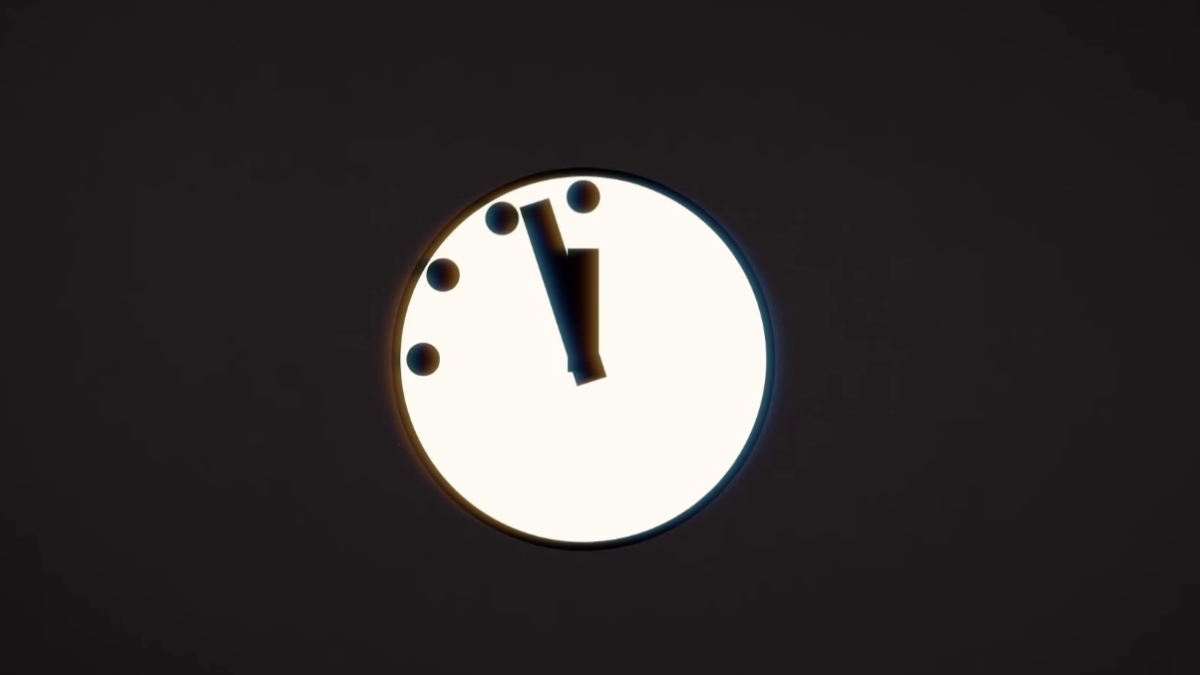This week proved that the gravest threat to the human race is still the human race. We appear to be marching closer to doomsday — even if scientists won’t say it yet.
On Tuesday, Politico reported that the U.S. and allied intelligence agencies will beef up surveillance of the Kremlin’s nuclear arsenal in response to another round of what have now become routine threats from President Vladimir Putin. As he announced his country’s first war mobilization since World War II with the calling up of 300,000 reservists, Putin made clear that the country’s use of nuclear weapons was a real possibility.
“If Russia feels its territorial integrity is threatened, we will use all defense methods at our disposal, and this is not a bluff,” Putin said, days before the Kremlin sponsored sham elections in Ukrainian territory to pave the way for Russian annexation.
White House National Security Adviser Jake Sullivan repeated across three Sunday morning television shows that the U.S. would respond to any use of nuclear weapons with “catastrophic consequences” for the Kremlin.
Without him spelling out the details of the deliberately ambiguous phrase, a U.S. response could range from tougher economic sanctions to tit-for-tat nuclear retaliation, the latter of which risks escalation to a nuclear Armageddon.
Upon completion of the staged referendums in four Ukrainian territories, Putin’s predecessor, who is now deputy chairman of Russia’s Security Council, Dmitry Medvedev, issued yet another warning that nuclear weapons might be deployed. Putin’s threats, Medvedev wrote in a Tuesday Telegram post, are “certainly not a bluff.”
“I believe that NATO will not directly intervene in the conflict even in this situation,” Medvedev said. “Overseas and European demagogues are not going to perish in a nuclear apocalypse. Therefore, they will swallow the use of any weapon in the current conflict.”
Despite the heightened rhetoric from a frustrated Moscow now engaged in a months-long war, the infamous “Doomsday Clock” remains unchanged from January 2020 at 100 seconds to midnight. The Bulletin of Atomic Scientists, which sets the made-up clock, refused to inch the hands closer to global catastrophe in March after the major war broke out between Russia and Ukraine. Putin even began the invasion with a warning that other nations who intervene will “face consequences that you have never seen.”
Six months later, a spokesman for the Bulletin told The Federalist that no changes would be made until the group’s scientists meet in November and discuss what time it will be in January.
“As the war continues, the Science and Security Board of the Bulletin of the Atomic Scientists continues to monitor developments in Ukraine and will take them into account for future Doomsday Clock announcements,” said John Pope, the group’s chief audience officer.
The artificial clock was created after World War II and has remained a fixation among journalists to cheer Democratic policy outcomes while fearmongering over Republicans. For example, The Washington Post ran the headline, “The Doomsday Clock just advanced, ‘thanks to Trump'” just six days after President Donald Trump’s 2017 inauguration.
Meanwhile, amid the back-and-forth saber-rattling between the world’s largest two nuclear powers (with a combined inventory of 11,405 warheads), NASA successfully smashed a spacecraft into an asteroid for the purpose of saving the world in the distant future.
On Monday, the Double Asteroid Redirection Test (DART) mission crashed a high-speed projectile into a small space rock 7 million miles away. The objective of the mission is to determine the capability of redirecting an asteroid if it were hurling toward Earth. While the final results of the mission likely won’t be conclusive for weeks, the spacecraft’s successful collision marks a turning point in human history, which is now equipped to save the planet from extraterrestrial threats.
“For the first time, humanity has demonstrated the ability to autonomously target and alter the orbit of a celestial object,” celebrated Ralph Semmel, the director of the Johns Hopkins University Applied Physics Laboratory, after the crash.
It’s ironic that the same week NASA conducted what appears to be so far a successful mission related to saving the planet, the specter of nuclear apocalypse has reached a new realm of possibility. On the other hand, one has to wonder how long the human race could realistically co-exist with more than 13,000 nuclear warheads in the first place.
The first nuclear bomb was detonated in July 1945 on a vast expanse of New Mexican desert. Within a month, the only two bombs ever deployed on the battlefield were dropped in Japan to end the Second World War. The explosions in Hiroshima and Nagasaki not only forced the Japanese into capitulation, but they also introduced a new era of unprecedented destruction looming over the globe. An eerie story about Albert Einstein spells out the predicament:
Professor Albert Einstein was asked by friends at a recent dinner party what new weapons might be employed in World War III. Appalled at the implications, he shook his head.
After several minutes of meditation, he said. “I don’t know what weapons might be used in World War III. But there isn’t any doubt what weapons will be used in World War IV.”
“And what are those?” a guest asked.
“Stone spears,” said Einstein.
While the proliferation of nuclear weapons since 1945 has served as a deterrent to global conflict by raising the costs of a third world war to nothing short of self-extermination, it would also seem a miracle to last 100 years without another detonation.
Over the course of human history, there has been no shortage of conflict. The first two world wars happened within only 21 years of each other. Can we really go five times that without another global conflict breaking out? While the consequences of a nuclear war are certain, the avoidance of one will always be far from it. We can stop an asteroid, but not incompetent leaders.









